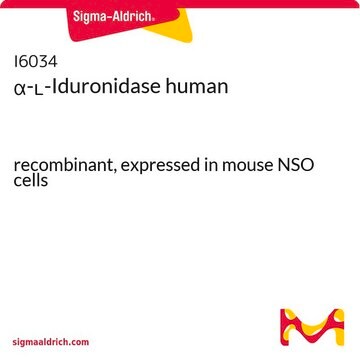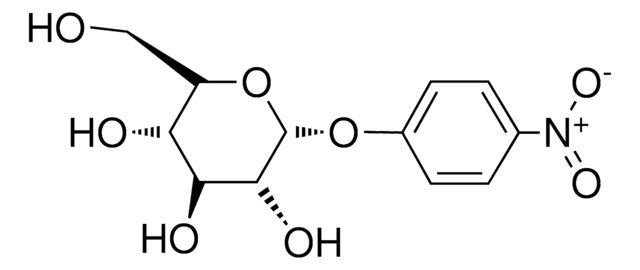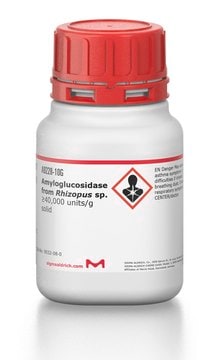G3651
α-Glucosidase from Bacillus stearothermophilus
lyophilized powder, ≥50 units/mg protein
Synonym(s):
α-D-Glucoside glucohydrolase, Maltase
About This Item
Recommended Products
form
lyophilized powder
Quality Level
specific activity
≥50 units/mg protein
greener alternative product characteristics
Waste Prevention
Design for Energy Efficiency
Learn more about the Principles of Green Chemistry.
sustainability
Greener Alternative Product
foreign activity
β-Glucosidase, α−galactosidase and β−galactosidase ≤0.1%
greener alternative category
relevant disease(s)
diabetes (management of non-insulin-dependent diabetes mellitus)
storage temp.
2-8°C
General description
Application
Biochem/physiol Actions
Unit Definition
Physical form
Analysis Note
Other Notes
inhibitor
substrate
Storage Class Code
11 - Combustible Solids
WGK
WGK 3
Flash Point(F)
Not applicable
Flash Point(C)
Not applicable
Personal Protective Equipment
Certificates of Analysis (COA)
Search for Certificates of Analysis (COA) by entering the products Lot/Batch Number. Lot and Batch Numbers can be found on a product’s label following the words ‘Lot’ or ‘Batch’.
Already Own This Product?
Find documentation for the products that you have recently purchased in the Document Library.
Customers Also Viewed
Our team of scientists has experience in all areas of research including Life Science, Material Science, Chemical Synthesis, Chromatography, Analytical and many others.
Contact Technical Service













